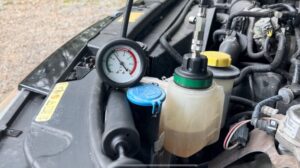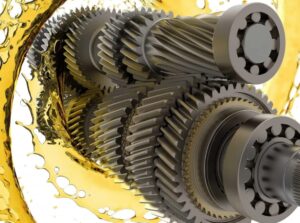Agricultural Engine Oil in UAE: Tips for Agricultural Machinery
What Are Agricultural Lubricants For?
Agricultural lubricants are specially formulated oils and greases designed to minimize friction, reduce wear and tear, and protect machinery from corrosion. These lubricants are crucial for tractors, harvesters, and other farming equipment that operate under extreme conditions, including high temperatures, heavy loads, and dusty environments. Their primary functions include:
Reducing friction between moving parts
Preventing rust and corrosion
Enhancing fuel efficiency
Minimizing mechanical wear
Extending the lifespan of machinery
Providing thermal stability under extreme temperatures
Preventing the formation of sludge and deposits
Reducing oxidation, which can degrade oil quality
Types of Lubricants Used in Agricultural Applications
Agricultural machinery requires different types of lubricants based on their specific functions. The most commonly used lubricants include:
Engine Oil – Ensures smooth operation of tractor and harvester engines by reducing wear and tear. It also helps in maintaining an optimal temperature and preventing sludge buildup.
Hydraulic Fluids – Used in hydraulic systems to transfer power and lubricate components. They also prevent foaming and oxidation, ensuring efficiency.
Gear Oil – Protects gears from wear and ensures smooth transmission operations by providing excellent load-carrying capability.
Greases – Ideal for lubricating moving parts such as bearings, joints, and bushings. They offer superior adhesion, protecting against water and contaminants.
Transmission Fluids – Essential for the proper functioning of the transmission system, ensuring smooth gear shifts and extending the life of clutches and gear components.
Coolants and Anti-Freeze – Helps regulate engine temperature and prevents overheating, reducing the risk of breakdowns.
Biodegradable Lubricants – Eco-friendly alternatives that reduce environmental impact while maintaining efficiency.
How to Maintain Agricultural Machinery?

Regular maintenance of agricultural machinery is crucial for ensuring optimal performance and avoiding costly repairs. Here are some essential tips:
Routine Inspections – Check for oil leaks, unusual noises, and worn-out parts.
Regular Oil Changes – Follow the manufacturer’s guidelines for oil change intervals to prevent engine wear.
Keep Machinery Clean – Remove dirt, dust, and debris to prevent contamination of lubricants, which can degrade their efficiency.
Check Oil Levels Frequently – Low oil levels can lead to increased friction, overheating, and mechanical failure.
Lubricate Moving Parts – Apply grease to necessary components to ensure smooth operation and prevent excessive wear.
Monitor Engine Performance – Watch for signs of reduced power or efficiency that could indicate oil-related issues.
Replace Filters – Oil and fuel filters should be changed regularly to prevent contamination and ensure optimal fluid flow.
Store Lubricants Properly – Keep lubricants in a dry, cool place to prevent degradation caused by heat and moisture exposure.
Factors That Affect the Oil
Several factors impact the performance and longevity of agricultural engine oil, including:
Operating Conditions – Extreme temperatures, heavy loads, and dust exposure can degrade oil faster.
Oil Quality – High-quality synthetic oils provide better protection and longevity compared to conventional oils.
Contaminants – Dirt, moisture, and metal particles can reduce oil effectiveness and lead to mechanical failures.
Usage Frequency – Frequent use of machinery requires more frequent oil changes to maintain peak efficiency.
Storage Conditions – Improper storage can lead to oil degradation, reducing its effectiveness in lubrication.
Compatibility with Equipment – Using the wrong type of oil can cause damage to seals, gaskets, and other engine components.
Benefits of Agricultural Engine Oil Lubrication
Using the right lubrication in agricultural machinery provides several benefits:
Enhanced Equipment Lifespan – Reduces wear and tear, extending the life of machinery significantly.
Improved Fuel Efficiency – Proper lubrication minimizes friction and reduces fuel consumption, helping farmers save on fuel costs.
Reduced Maintenance Costs – Prevents breakdowns and expensive repairs by ensuring components remain in optimal condition.
Smooth Operation – Ensures optimal performance under varying conditions, improving productivity and efficiency.
Protection Against Corrosion – Prevents rust and other forms of damage caused by moisture and exposure to harsh environments.
Reduction in Heat Generation – Proper lubrication helps dissipate heat, preventing overheating and damage to engine parts.
How to Know When Oil Is Due for a Change?
Timely oil changes are crucial for maintaining engine performance. Signs that indicate oil needs changing include:
Dark, thick, or gritty oil texture, indicating contamination and degradation.
Unusual engine noises or knocking sounds, suggesting increased friction.
Reduced fuel efficiency due to increased resistance in moving parts.
Overheating of machinery, which can result in serious damage.
Smoke or excessive exhaust emissions, which may indicate oil burning.
Warning lights on the dashboard indicating low oil pressure or engine issues.
The Importance of Diesel Tractor Oil
Diesel tractor oil is specifically formulated to meet the demands of heavy-duty agricultural engines. It helps in:
Reducing engine deposits and keeping the system clean.
Enhancing wear protection for critical components.
Improving fuel efficiency and performance under extreme conditions.
Maintaining viscosity to ensure proper lubrication.
Preventing sludge formation and oxidation.
Using the Right Diesel Tractor Oil
Choosing the right diesel tractor oil is essential for optimal performance. Consider the following factors:
Manufacturer Recommendations – Always follow the specifications provided by the tractor manufacturer.
Viscosity Grade – Select oil with the correct viscosity for the local climate and operating conditions.
Additives – Look for oils with anti-wear, detergent, and dispersant additives for enhanced performance.
Synthetic vs. Conventional – Synthetic oils offer better performance and longer drain intervals.
API and SAE Standards – Ensure the oil meets industry standards for quality and compatibility.
Which Parts of a Tractor Need Lubricating?
Proper lubrication of all critical components ensures efficient operation. Key parts that require lubrication include:
Engine – Requires high-quality engine oil to ensure smooth functioning.
Transmission System – Needs transmission fluid for smooth gear shifts.
Hydraulic System – Uses hydraulic oil to power various attachments efficiently.
Wheel Bearings – Require grease for smooth movement and reduced friction.
Steering Components – Need lubrication to ensure easy maneuverability and control.
PTO (Power Take-Off) Shaft – Must be greased to prevent wear and tear.
Brakes and Clutch System – Should be inspected and lubricated as necessary for smooth engagement.
Final Thoughts
Maintaining Agricultural Engine Oil Or machinery with proper lubrication is essential for efficiency and longevity, especially in the challenging conditions of the UAE. Using the right agricultural engine oil and following a strict maintenance schedule can save costs, reduce breakdowns, and enhance machinery performance. Farmers and agricultural operators should always prioritize high-quality lubricants and regular maintenance to ensure their equipment remains in optimal working condition.
FAQs
- Conventional Oil – Basic petroleum-based oil, suitable for older engines.
- Synthetic Oil – Offers superior performance, wear protection, and efficiency.
- Synthetic Blend Oil – A mix of conventional and synthetic oils, providing moderate protection.
- High-Mileage Oil – Specially formulated for vehicles with over 75,000 miles, reducing wear and oil leaks
- Distillate Fuel Oil – Includes diesel (No. 1 and No. 2 diesel) and heating oil.
- Residual Fuel Oil – Also called heavy fuel oil, used in ships and power plants.
- Kerosene-Based Fuels – Includes jet fuel and lamp oil.
0W-40 is a full synthetic engine oil used in high-performance and luxury vehicles, including sports cars, European cars (BMW, Mercedes, Audi), and turbocharged engines. It provides excellent cold-start performance and protection at high temperatures.

Radiator Stop Leak UAE: Quick Fix for Vehicle Cooling System Leaks
Radiator Stop Leak UAE: Quick Fix for Vehicle Cooling System Leaks Discover More Introduction: The Unforgiving UAE Climate and Your Vehicle’s Lifeline The United Arab Emirates’ automotive landscape is defined by extremes. Ambient temperatures that regularly surpass 45°C (113°F), coupled with intense urban congestion and long, high-speed desert drives, create a perfect storm of thermal stress for every vehicle. In this environment, your engine cooling system is not merely a subsystem; it is the single most critical component preventing catastrophic engine failure.

What Type of Transmission Oil in UAE Does My Car Need? Your Complete Guide
What Type of Transmission Oil in UAE Does My Car Need? Your Complete Guide Discover More Navigating the vast, sun-baked highways of the United Arab Emirates—from the dynamic urban sprawls of Dubai and Abu Dhabi to the majestic desert dunes and the tranquil mountain passes of the Hajar range—places extraordinary mechanical and thermal stress on every component of your vehicle. While conscientious drivers often prioritize engine oil changes, the vital lifeblood safeguarding the transmission, the complex heart of your car’s

Guide to UAE Turbine Oil Selection Application & Management for Industrial Facilities
Guide to UAE Turbine Oil Selection, Application, and Management for Industrial Facilities Discover More In the hyper-competitive industrial landscape of the United Arab Emirates, where operational excellence directly translates to economic advantage, turbine lubrication represents a critical nexus of reliability engineering and strategic asset management. This comprehensive guide, developed with technical insights from Rumanza Lubricants, provides an unprecedented deep dive into the science, selection criteria, and life-cycle management of turbine oils specifically engineered for the extreme operating conditions of the

Synthetic vs. Mineral Hydraulic Oil in UAE : Which is Best for Your Operation?
Synthetic vs. Mineral Hydraulic Oil in UAE : Which is Best for Your Operation? Discover More Across the dynamic landscape of the United Arab Emirates—from the megaprojects of Dubai Marina to the intricate conveyor systems of Jebel Ali Port, from the massive hydraulic shovels in Al Dhafra quarries to the precision automated lines in Abu Dhabi’s industrial cities—the silent, powerful force of hydraulics is indispensable. These systems convert fluid power into monumental force and precise motion. At the core of

What is a Pour Point Depressant? | Benefits, Uses & How It Works Mechanism
What is a Pour Point Depressant? | Benefits, Uses & How It Works Mechanism Discover More In the intricate world of lubricant formulation, few additives play as critical yet understated a role in cold-weather operability as Pour Point Depressants (PPDs). These specialized chemical compounds are the linchpin that prevents machinery from seizing up when temperatures plummet. This in-depth guide goes beyond the basics, exploring the sophisticated chemistry, detailed mechanism, nuanced benefits, and practical considerations of PPDs. We will also examine the

Guide to Gasoline Engine Oils for UAE’s Extreme Climate: Engineering Peak Performance
Gasoline Engine Oils for UAE’s Extreme Climate: Engineering Peak Performance Discover More In the heart of the Arabian Peninsula, the United Arab Emirates stands as a testament to human ambition, with its engineering marvels and endless highways. Yet, this environment of soaring achievement is also one of the most punishing on Earth for machinery. For your vehicle—whether a nimble city sedan, a powerful family SUV, or a high-performance sports car—the UAE’s climate is a relentless adversary. The choice of engine

What are Polyol Ester Oils & Lubricants – Properties & Applications
What are Polyol Ester Oils & Lubricants – Properties & Applications Discover More In the intricate world of industrial machinery, automotive engines, and advanced refrigeration systems, the choice of lubricant is not merely a maintenance task—it’s a critical engineering decision. While conventional mineral oils have served us for over a century, the demands of modern technology require fluids that can perform under extreme pressure, temperature, and environmental stress. This is where synthetic lubricants, specifically Polyol Ester oils, come to the forefront.

Guide to Choosing the Right Lithium Complex Grease in UAE
Guide to Choosing the Right Lithium Complex Grease in UAE for Unbeatable Performance Discover More In the heart of a region defined by its ambition and extreme climate, the machinery that builds and powers the UAE operates under immense pressure. From the towering cranes sculpting Dubai’s skyline to the massive haul trucks in Abu Dhabi’s industrial zones and the relentless conveyor systems in Jebel Ali Port, every moving part is a critical link in the chain of progress. Protecting these